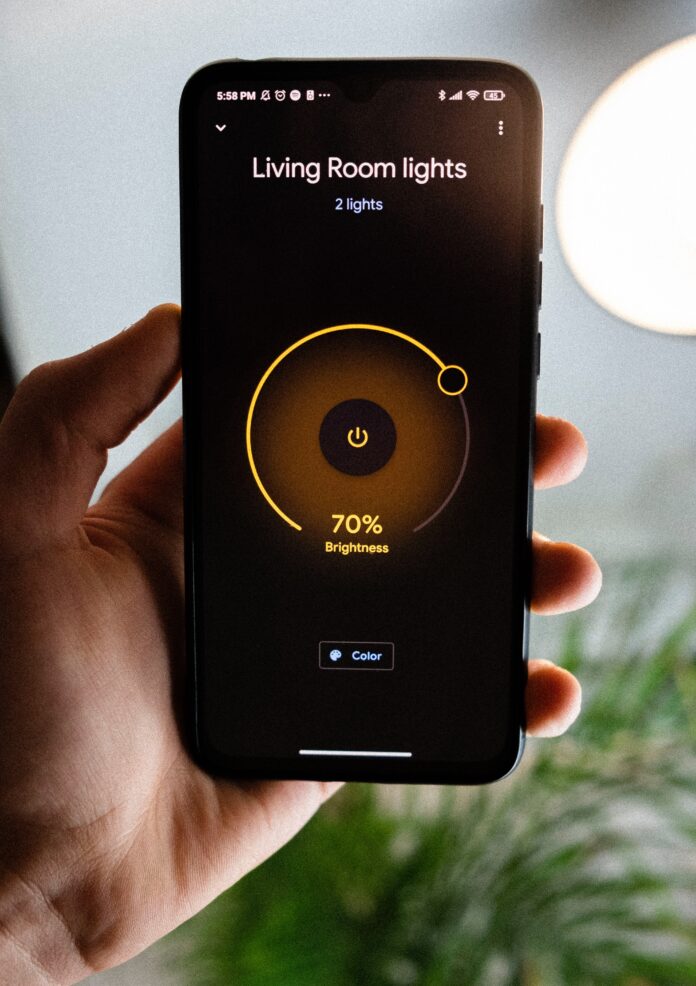Smart Homes have revolutionized the way we interact with our living spaces, offering unprecedented convenience, comfort, and energy efficiency. These homes are equipped with advanced technologies and interconnected devices that allow residents to control various aspects of their homes through automated systems, voice commands, or mobile applications. From controlling the temperature and lighting to managing security and entertainment systems, Smart Homes provide a seamless and integrated experience for homeowners. This article aims to provide you with a comprehensive understanding of Smart Homes and highlight ten essential aspects you need to know.
1. Integration and Connectivity: At the core of a Smart Home is its ability to integrate and connect various devices and systems. This integration enables seamless communication and coordination between different components, allowing homeowners to control and monitor multiple aspects of their home from a single platform.
2. Home Automation: Smart Homes are equipped with automation systems that enable the automation of various tasks and routines. Through programmed schedules or triggers, homeowners can automate processes such as adjusting the thermostat, turning on/off lights, or even brewing a cup of coffee in the morning.
3. Voice Control: One of the most convenient features of Smart Homes is the ability to control devices and systems using voice commands. Integration with voice assistants like Amazon Alexa or Google Assistant allows homeowners to simply speak their desires and have their Smart Home respond accordingly, providing a hands-free and effortless experience.
4. Energy Efficiency: Smart Homes offer significant energy-saving benefits. Through the integration of smart thermostats, lighting controls, and energy monitoring systems, homeowners can optimize energy usage, reduce wastage, and lower their utility bills. For example, sensors can detect when a room is unoccupied and adjust the temperature or turn off lights automatically.
5. Security and Safety: Smart Home security systems provide enhanced protection and peace of mind. These systems often include smart door locks, security cameras, motion sensors, and smoke detectors. Homeowners can monitor their property remotely, receive alerts in case of any suspicious activities, and even remotely control access to their homes.
6. Remote Monitoring and Control: One of the key advantages of Smart Homes is the ability to remotely monitor and control various devices and systems. Whether you’re at work, on vacation, or simply away from home, you can access your Smart Home through a mobile app and make adjustments as needed. This feature offers convenience and the ability to ensure your home is safe and functioning properly even when you’re not physically present.
7. Entertainment and Multimedia: Smart Homes provide immersive entertainment experiences. Integrated audio and video systems allow homeowners to stream music and video content throughout their homes, creating a seamless and synchronized entertainment environment. Home theaters, multi-room audio setups, and smart TVs are some examples of how Smart Homes enhance the entertainment experience.
8. Smart Lighting: Smart lighting systems offer personalized control over the illumination of your home. With features like dimming, color-changing bulbs, and automated scheduling, homeowners can create different lighting scenes for various moods, energy-saving modes, or even simulate occupancy when away.
9. Health and Well-being: Smart Homes can contribute to improved health and well-being. Devices such as smart mattresses, sleep trackers, and air quality monitors help optimize sleep patterns and create healthier living environments. Additionally, smart appliances and kitchen gadgets can aid in maintaining a balanced diet and a healthier lifestyle.
10. Future Expansion and Customization: Smart Homes offer flexibility for future expansion and customization. As technology advances and new devices become available, homeowners can easily integrate them into their existing Smart Home systems. This scalability allows homeowners to continually enhance and adapt their homes to meet their evolving needs and preferences.
Smart Homes provide a multitude of benefits and have the potential to transform our daily lives. Through integration, automation, connectivity, and convenience, these homes offer enhanced control, security, energy efficiency, and entertainment experiences. With features such as voice control, remote monitoring, and customization options, Smart Homes have the flexibility to adapt to individual preferences and future technological advancements. Embracing the Smart Home revolution allows homeowners to create modern, efficient, and personalized living spaces that cater to their unique needs and aspirations.
Moreover, Smart Homes prioritize energy efficiency and sustainability. With smart thermostats and energy monitoring systems, homeowners can track and optimize their energy consumption, leading to reduced utility bills and a smaller carbon footprint. By automatically adjusting temperature settings when no one is home or optimizing lighting based on natural light levels, Smart Homes actively contribute to environmental conservation.
Security and safety are paramount in any home, and Smart Homes excel in this area. Integrated security systems, such as smart door locks, surveillance cameras, and motion sensors, provide enhanced protection and real-time monitoring. Homeowners can receive alerts on their smartphones if any unusual activity is detected, granting them peace of mind and enabling them to take immediate action, such as notifying authorities or remotely locking doors.
Remote monitoring and control capabilities are invaluable for homeowners who are constantly on the go. Whether traveling for work or leisure, the ability to access and manage your Smart Home from anywhere in the world ensures that you are always connected and in control. Forgot to turn off the oven? No problem. With a few taps on your smartphone, you can ensure that everything is safe and secure, even when you’re miles away.
Smart Homes also bring entertainment to a whole new level. With integrated audio and video systems, homeowners can enjoy high-quality, synchronized music and movies throughout their living spaces. From immersive home theaters to multi-room audio setups, Smart Homes transform entertainment into an immersive experience that can be tailored to suit individual preferences and desired ambiances.
Lighting plays a crucial role in setting the mood and ambiance of any home, and Smart Homes take it to the next level. With smart lighting systems, homeowners can create personalized lighting scenes for different activities, such as bright lights for productive work or dimmed lights for a cozy evening. Furthermore, the ability to control lighting remotely allows homeowners to simulate occupancy, enhancing security when away from home.
The well-being of residents is also prioritized in Smart Homes. Innovative technologies, such as smart mattresses that adjust to individual sleep patterns, air quality monitors that ensure a healthy living environment, and kitchen gadgets that assist in maintaining a balanced diet, contribute to improved health and overall well-being. Smart Homes go beyond automation and connectivity; they actively support healthier lifestyles.
Finally, Smart Homes are designed with future expansion and customization in mind. As technology advances and new devices and systems become available, homeowners can easily integrate them into their existing Smart Home infrastructure. This scalability ensures that your Smart Home can continually evolve and adapt to your changing needs and preferences without requiring a complete overhaul.
In conclusion, Smart Homes offer a comprehensive range of benefits and functionalities that enhance the way we live. From seamless integration and automation to energy efficiency, security, and entertainment, these homes empower homeowners with control, convenience, and peace of mind. With the ability to remotely monitor and manage devices, customize lighting and entertainment experiences, and prioritize well-being, Smart Homes are paving the way for a more connected, efficient, and enjoyable living experience.
















